New HPE Global Channel Chief Hunter On His Relationship With Meg Whitman, His 'Number One Priority' And The Changing Partner Landscape
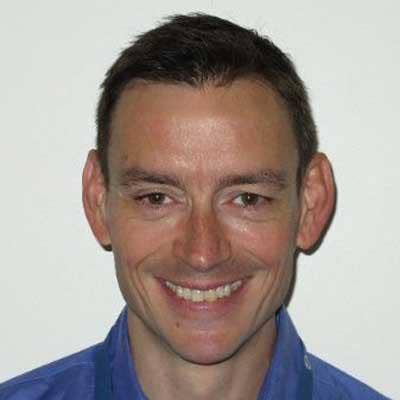
Changing Of The Channel Guard
New Hewlett Packard Enterprise Global Channel Chief Paul Hunter – the channel-savvy former chief of staff for HPE CEO Meg Whitman -- said his strong relationships with Whitman and the company's top sales leaders are going to be critical in helping partners drive sales growth.
"It means I can help the partners get things done and when there are changes in the company or there are initiatives we want to start, I hear them immediately and I have got a seat at the table when we are having discussions about how to go and execute them," said Hunter in an exclusive interview with CRN after being named to the top job in the wake of the departure of Global Channel Chief Denzil Samuels, who served only nine months in the position.
Hunter, a 15-year HPE and HP veteran who has experience as a channel sales director and personal systems business general manager, said his first 120 days on the job will be filled with a whirlwind of partner meetings.
What's more, he said, partners should not expect big changes out of the gate in HPE channel strategy and programs. "One of the real advantages of working with HPE is we have been a predictable partner to work with," he said. "Actually, the first thing I need to do is not change too much stuff. I think there is a tendency when new leaders get appointed the first thing they want to do is go and change a ton of stuff. That will not be my inclination."

What is your message to partners as you take on the global channel chief job?
The first thing is it is a privilege to take the job. When I came over [from the United Kingdom three years ago] to be Meg's chief of staff, it was training for a future leadership role. I couldn't have gotten better experience than working with Meg and the leadership team in Palo Alto for three years. That set me up for this role to lead the channel team globally. I am privileged to be doing this and am really excited about it. It is a good time to be a leader in Hewlett Packard Enterprise. We obviously have a lot going on. I think it is an exciting time for the partners as well.
Over the past 12 months, we have delivered a number of acquisitions and innovations that really provide opportunities for partners to grow. That is what we will be doing for Fiscal Year 2018. Our aspirations will be to grow with the partners in the year ahead. We want to be one of the best companies to do business with.
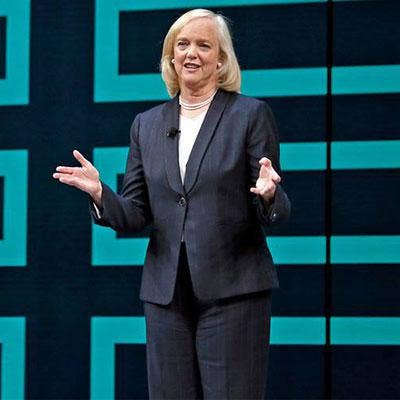
How important are the strong relationships you have with HPE CEO Meg Whitman [pictured], HPE President Antonio Neri and the regional sales leaders?
I think those relationships are crucial. A lot of what gets done in the company gets done in the corridors in Palo Alto and you need to have relationships with the leaders of the company, the leaders of the business units and the CEO. As you know, Meg and Antonio and the business unit leaders are channel champions. My job is to marry the interests of HPE with the interests of the partners and get things done that are essentially beneficial to both.
Those relationships are completely critical. It means I can help the partners get things done and when there are changes in the company or there are initiatives we want to start, I hear them immediately and I have got a seat at the table when we are having discussions about how to go and execute them. So I can help enable the partners to deliver to their customers. Essentially, we are all in this to deliver outcomes for our customers.

How has your 15-year history at HPE shaped your view of the channel?
I have been working with the channel for 20 years. I joined Compaq in 1995 working for a financial services sales team. The first thing that happened is my sales manager at the time convened a joint sales meeting with the financial services team at Computacenter. So right from the start of my career, I have been working hand in glove with the partners. They are an asset of the company. They are an extension of what we do and how we deliver value to our customers. They are completely intrinsic to the well-being and the future of our company. That is stitched into everything we do. My job is to make sure that continues to be successful as we go forward.
If you speak to the business unit leaders, like [Pointnext Chief] Ana [Pinczuk], as an example, you hear her say partners are going to be critical for the services business. The partners have got mind share at every level of the company.
We have to always be thinking about our customers and our partners and how we enable our partners to take what we build and what we service to our customers.

How does the global channel chief job change with the Next restructuring?
The role changes in as much as the line of sight between the partner business manager in the country that is talking to a partner and the connection with the CEO is much more condensed now. Partners and customers have greater access and line of sight to what is happening at the center of the company. In that respect, there are less people involved.

Are there any changes in the responsibilities of the job as you take over the global channel chief role?
The responsibilities stay roughly the same. The role encompasses ISVs, systems integrators, channel partners and distributors. I think it is important it does that because, as you know, the landscape for partners is changing and partners are changing their business models. There is no one traditional channel partner anymore. There are partners and they have different business models and what they do for customers is changing, and we need to have program capabilities that encompass all types of partners with respect to their specializations.
One of the things we will be doing for the future is we will be hosting all of the programs for all routes to market in my team under [HPE Vice President of Worldwide Channel Programs] Jesse Chavez. Previously, they were in different sales teams. Now we will have one end-to-end view of all the programs we run for all the routes to market, which I think is important as we maintain some consistency.
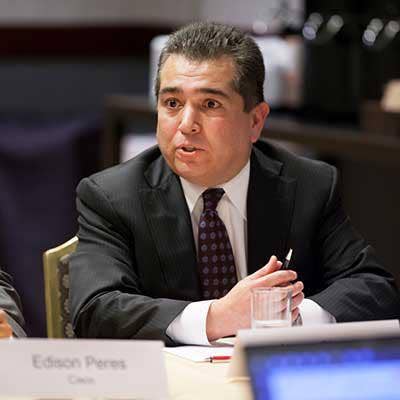
How will consolidating all routes to market programs under Jesse Chavez [pictured] benefit partners?
Previously, some of the responsibility for programs for system integrators, ISVs and OEMs were not in his team. They were in other teams. They will now all be consolidated in Jesse's team. Now you have one programmatic owner for all routes to market.
I think that makes a lot of sense because, as you know, it is easy to start up a number of different islands of programs. Actually, what you need is for programs for all routes to market to coexist and coexist in a way that is not disruptive. I am excited for what Jesse will do in the coming months.

Will that ease channel conflict and tension in the field?
I hope so. I think we have actually been relatively good in recent years at avoiding channel conflict. I think partners would say they are pretty happy with how we have behaved and the predictability. The majority of our business goes through partners and I can only see that continuing. My job will be to grow the partner revenue. The best line of defense is offense. If we continue to grow, HPE is happy, our investors are happy, our partners are happy and our customers are happy. So that is what we'll be looking to do. I think there is an exciting year ahead.
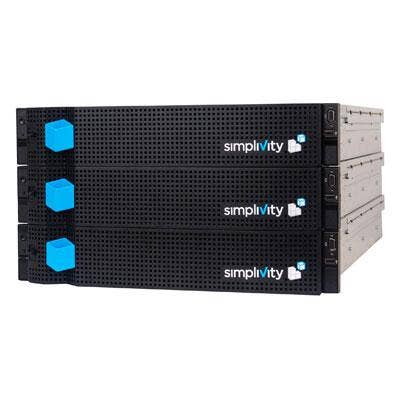
What's the importance of SimpliVity and Nimble, which are 100 percent channel models?
I am particularly excited about SimplVvity and Nimble not just because of the technology innovation they bring, but also because of the people.
If we are able to do with SimpliVity and Nimble what we have done with Aruba, that is huge. The Aruba business has grown by $1.5 billion in two to three years. If you are able to achieve similar growth with Nimble and Simplivity and apply it to our channel, that is huge.
It is not just that. It is the people that have come with those companies. They have grown channel from the ground up from ground zero. I want that attitude on the team. We want partner account managers that are hungry to talk to new partners about new technology areas, and the more we get of that attitude the better.

Talk about the removal of the management layers from as many as seven to four.
There are less people involved. I think that is going to be a benefit. It used to irritate the hell out of me when I was a country general manager that the number of people asking me questions was more than the number of people that were capable of answering them. I think we are going to address that, and our relationships with the sales leaders in the 11 geographies is going to be critical. I have started to talking to them. I know many of them and the access is immediate.

How do you see the job with regard to working with sales leaders even though you have global responsibility?
It is a real balance. When you are in a geography like the U.S., for example, and you are [U.S. Vice President and Channel Chief] Terry Richardson running the channel business, what you really want is the autonomy to go and do what you think makes sense for the partners in your region. And when you are in a global function, your complaint is why doesn't everyone want to do what I have asked of them? The reality is the two need to work pretty closely together. You want the flexibility at the country level to do what is right for the partners and customers in your country, and also to be able to react really quickly. At the same time, you want global programs that provide consistency across the globe that are implemented with agility and precision. It is a balance between the two. I will have to have and will want a very close relationship with the sales directors in the 11 geographies.

What is the secret to making the relationships with the global sales leaders click in the field?
I need to help them make things happen in their geographies. At the same time, they need to help me with a consistent approach to how we manage our channel on a global basis. It is a delicate balance. If I am not providing value to them and am of no use to them, I am overhead. And, at the same time, if they are not executing in the country then we are not delivering our results. We are dependent on each other.

What is your plan for the first 120 days on the job?
The first thing is I need to go out and meet the partners. Up until Christmas, there are going to be several opportunities to do lots of that. There are two Canalys events: one in Asia and one in South America. We have got our own Discover partner event in Madrid. I am going to be visiting Europe for a week. I am also going to be visiting the major partners in the U.S. That is the number one priority: get out and see the partners, update them as to where we are, hopefully enthuse them with the future that we laid out at the Securities Analyst Meeting, which I am excited about.
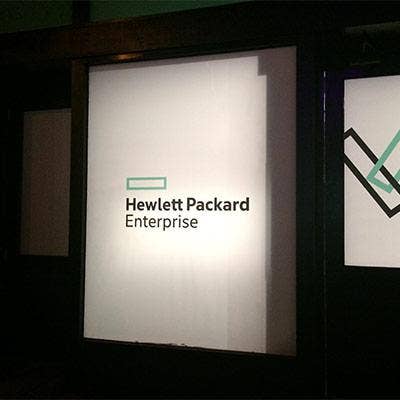
Are there going to be any changes out of the gate for the channel?
One of the real advantages of working with HPE is we have been a predictable partner to work with. Actually, the first thing I need to do is not change too much stuff. I think there is a tendency when new leaders get appointed the first thing they want to do is go and change a ton of stuff. That will not be my inclination. My inclination will be to build on what is already working.
I looked at the partner satisfaction scores for 2017. We just got the results back and essentially the feedback to us is they are happier with how we have been doing business with them in the last year compared with 2016. We need to continue on that trajectory. There are still things to improve. We most certainly need to continue to improve our ease of doing business and our execution, and that will be part of my remit for Jesse Chavez and the programs team.
The final piece is to start executing on Q1. Our Fiscal Year 2018 starts on Nov. 1. We need to be set up for a fast start now. If we deliver in Q1, it essentially gives us a good chance to deliver on 2018.

What are the internal sales compensation changes with the Next restructuring and how it will impact partners in the field?
In a year's time I want partners to say they are seeing us being more agile than we have been in the past. We have been essentially separating the company.
What we have now is core to the future. Essentially, we have to be faster. The whole Next [restructuring] hypothesis is based on us being faster. If we are not able to do that then essentially part of the thesis for the separations will not stand up. So that is what I am expecting. HPE Next in my mind is about being simpler and faster. We have a tendency here to design for 100 percent of the use cases. We don't need to do that. We just need to get the 80-20 rule happening and happening with speed. I am hoping we will be talking in a year's time and you will have feedback from the partners that they can get things done easier with HPE than was the case in the past.